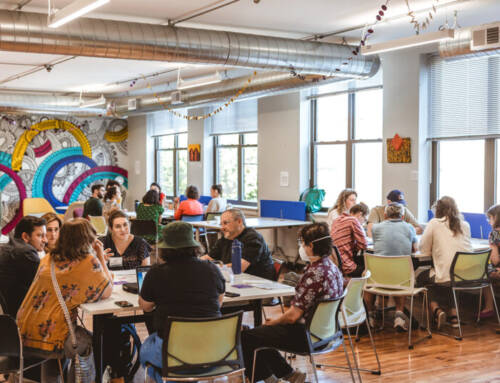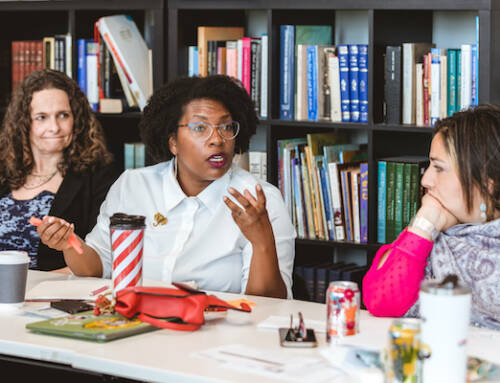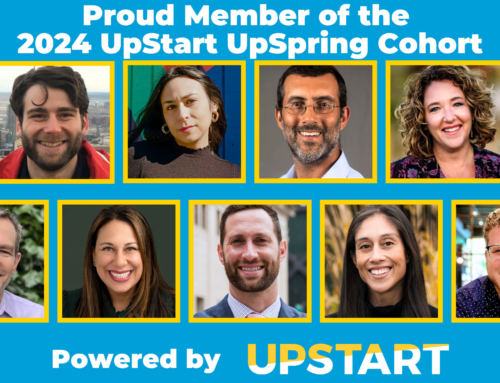
The past often gets a better rap than the present. Things were good, back in the day. More wholesome. Less complicated. Slower. Kinder. People looked in each others eyes. Children wrote essays without emoticons. Whose great-uncle hasnt complained of having had to walk to school uphill, both ways in the snow, as a child? Life may have been harder, harsher, but it built character, and that character is being lost.
The Jews take it all a step further. The Talmud in tractate Shabbat 112b says: If the earlier generations were like angels, then we are like human beings; and if they were like human beings, then we are like donkeys! It is referring specifically to our connection to themesorah, the tradition regarding the interpretation of the Torah. But it is making quite a clear statement about the relationship of the past to the present and future. It creates a general sense within the Jewish experience that, no matter what we do, the forward-movement of time distances us from the ideal. Because we cannot stop times winged chariot, we are in quite a conundrum. Our only recourse is to strive to stay as true to the past as we can, maintain its traditions, uphold its values, cherish its ways, even, or perhaps especially, as the world around us changes.
In a wonderful essay in T: The New York Times Style Magazine, entitled Sign of the Times, Andrew OHagan argues that this glorification of the past is simply an illusion, a story we tell ourselves. The actual truth, my friends, he writes, is that life has gotten better and better. Nothing in my long years of hunting for and buying records can beat Spotify, he writes. Ive heard many a nostalgist say there was something more, well, effortful, and therefore poetic, in the old system of walking for miles to a record shop only to discover theyd just sold out. People become addicted to the weights and measures of their own experience: We value our own story and what it entails. But we cant become hostages to the romantic notion that the past is always a better country.
Easier said than done. Part of the purpose of Judaism is to ensure that certain values and practices are cherished and preserved from generation to generation. When I ask Jewish professionals to share, deeply and honestly, why they have chosen to work in the Jewish community, the past always comes up. Some say it connects them to previous generations and their ancestors. Others feel that Judaism has something deeply valuable to offer the world, and they want to ensure that it continues to be offered. For others it is an expression of their religious identities; they are doing what they believe to be Gods work. But no matter the response, the underbelly is profoundly connected to the past its wisdom, values, and practices. Whether or not we are conscious of it, those of us who work in the Jewish community are charged to some extent with maintaining the country of the past. There is some sense hanging over our work that we are mere humans tending the garden of angels, mere donkeys, carrying the weight of human-folk.
This makes it exceptionally difficult to innovate. Change is always difficult. But it is particularly challenging when the ultimate purpose of the change is to preserve the past. One of the insights of the Adaptive Leadership system, developed by Ronald Heifetz and Marty Linsky, is that change is so hard because, by definition, it involves loss. OHagan frames it like this: To believe in progress is not only to believe in the future: It is also to usher in the possibility that the past wasnt all that.
This, I believe, is the rub for the Jewish community. We subconsciously fear that innovation negates that very thing we are striving to preserve. With one hand, we act to create the changes and growth the community needs, and with the other, consciously or unconsciously, we hold tight to certain ways of behaving and thinking that make it exceedingly difficult to change.
Take, for example, the issue of the role of women in religious leadership. This has remained an unresolved hotbed of debate, particularly, though by no means solely, in the orthodox community. It is less a halachic, or strictly religious, issue, as much as it is an issue of the fear and danger of what might be lost. Part of what Judaism values profoundly is a vibrant home environment. In order for that to be realistic, it is necessary that someone be in charge of running and maintaining the home. This has traditionally been the role of women, just as the public sphere has traditionally been the realm of men. The real issue, I believe, in this tired conversation, is connected more to the fear of losing the vibrancy of the home, than to giving women certain roles of power in the community. As long as the conversation continues to avoid the fear of loss, the issue will remain unresolved. The challenging work facing the community around this issue is learning how to preserve that value that it places on family life, while also admitting that the way roles have been traditionally divided wasnt all that. Moreover, that if we do not figure out a more creative way to empower both men and women to be their full selves as members of the family and members of the community, we are actually increasing our risk of losing the very thing we hold dear.
In order for the Jewish experience to continue to thrive and grow in the future, we must learn to expose and discuss the hidden fears behind those innovations that feel most important, and most threatening. We cannot move forward until we have looked back and acknowledged honestly what is the core value of our work, and worth maintaining, and how we can approach its maintenance in new ways. The only way we will be successful in that difficult work is if we shift our mindsets, and believe, truly believe, that theres more angel than donkey in us after all.
This blog is cross-posted on eJewish Philanthropy.
Our purpose is to enable entrepreneurs to bring bold Jewish ideas to light. We help them reach Up to people in new ways that are meaningful, more inclusive, and create a brighter future for our Jewish community and the world we share.




